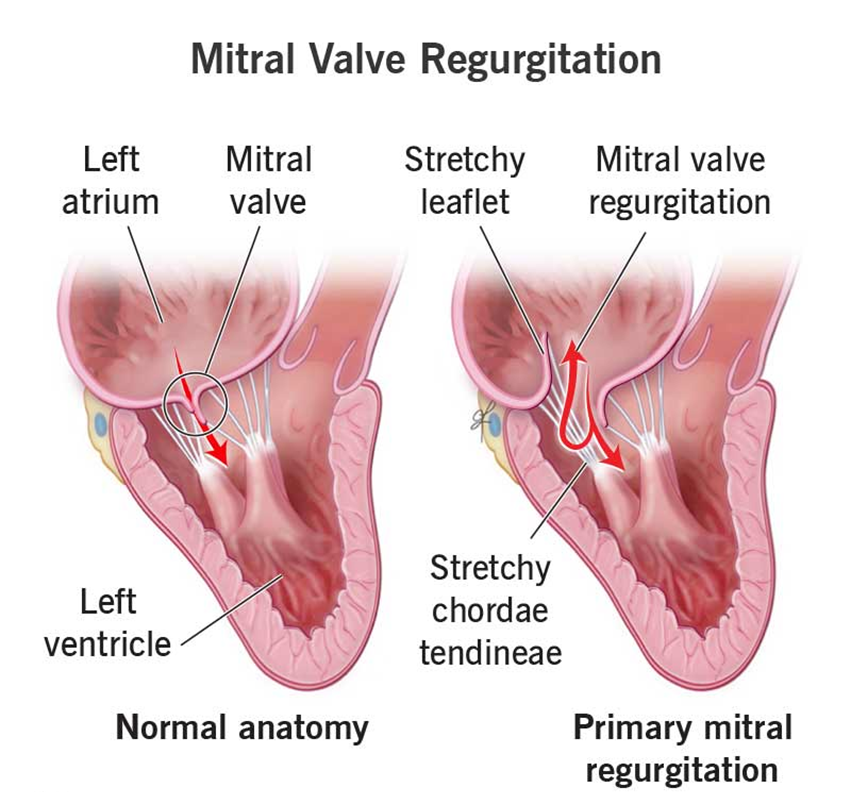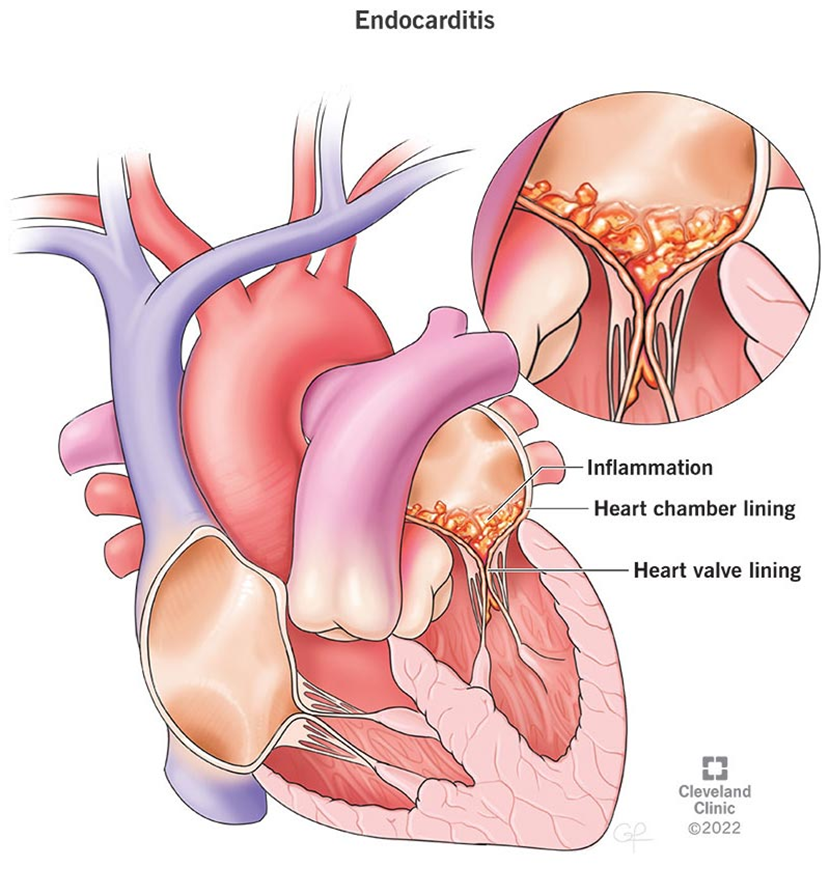James, the ICU nurse, is assessing a client with mitral valve insufficiency. Which of the following findings should the nurse expect?
Neck vein distention
Splenomegaly
Petechiae
S4 heart sound
Correct Answer : A,D
Choice A Reason:
Neck vein distention is a common finding in patients with mitral valve insufficiency. This condition leads to increased pressure in the left atrium, which can back up into the pulmonary veins and subsequently the right side of the heart, causing jugular venous distention.
Choice B Reason:
Splenomegaly is not typically associated with mitral valve insufficiency. It is more commonly seen in conditions like liver disease, hematologic disorders, and infections. Mitral valve insufficiency primarily affects the heart and lungs rather than the spleen.
Choice C Reason:
Petechiae are small, red or purple spots caused by bleeding into the skin. They are not a common finding in mitral valve insufficiency. Petechiae are more often associated with conditions that affect platelet function or coagulation, such as thrombocytopenia or vasculitis.
Choice D Reason:
An S4 heart sound, also known as an atrial gallop, can be heard in patients with mitral valve insufficiency. This sound occurs due to the atria contracting forcefully to overcome a stiff or hypertrophic ventricle, which is often a result of chronic pressure overload from the regurgitant flow.

Nursing Test Bank
Naxlex Comprehensive Predictor Exams
Related Questions
Correct Answer is ["B","C"]
Explanation
Choice A Reason:
First-degree heart block is a condition where the electrical signals in the heart are delayed but still reach the ventricles. It is generally considered benign and does not typically lead to heart failure. It is often asymptomatic and discovered incidentally on an ECG.
Choice B Reason:
Atrial fibrillation (AFib) is a common arrhythmia associated with heart failure. AFib causes the atria to beat irregularly and often rapidly, which can lead to poor blood flow and increased risk of stroke. In heart failure patients, AFib can exacerbate symptoms and worsen the prognosis due to the loss of atrial contraction and irregular ventricular response.
Choice C Reason:
Ventricular tachycardia (VT) is a serious arrhythmia that is often associated with heart failure. VT originates in the ventricles and can lead to hemodynamic instability and sudden cardiac death if not treated promptly. It is a common complication in patients with heart failure and cardiomyopathy.
Choice D Reason:
Sinus bradycardia is a slower than normal heart rate, typically less than 60 beats per minute. While it can occur in healthy individuals, especially athletes, it is not specifically associated with heart failure. In some cases, severe bradycardia can lead to symptoms of heart failure, but it is not a primary arrhythmia linked to the condition.
Correct Answer is B
Explanation
Choice A Reason:
Reduced blood pressure is not a specific complication of infective endocarditis. While hypotension can occur in severe cases due to septic shock, it is not a hallmark of the disease. Infective endocarditis primarily affects the heart valves and can lead to embolic events, heart failure, and other complications.
Choice B Reason:
Osler's nodes are a classic sign of infective endocarditis. These are painful, red or purple, raised lesions found on the hands and feet. They are caused by immune complex deposition and are indicative of the systemic nature of the infection. Their presence can help in the clinical diagnosis of infective endocarditis.
Choice C Reason:
Clear lung sounds are not a complication of infective endocarditis. In fact, clear lung sounds would generally indicate that there is no pulmonary involvement or congestion. Complications of infective endocarditis are more likely to involve the heart, kidneys, and other organs through embolic events.
Choice D Reason:
Increased appetite is not associated with infective endocarditis. Patients with this condition often experience symptoms such as fever, fatigue, and weight loss due to the chronic infection. Increased appetite would be an unusual finding and not related to the disease process.

Whether you are a student looking to ace your exams or a practicing nurse seeking to enhance your expertise , our nursing education contents will empower you with the confidence and competence to make a difference in the lives of patients and become a respected leader in the healthcare field.
Visit Naxlex, invest in your future and unlock endless possibilities with our unparalleled nursing education contents today
Report Wrong Answer on the Current Question
Do you disagree with the answer? If yes, what is your expected answer? Explain.
Kindly be descriptive with the issue you are facing.
